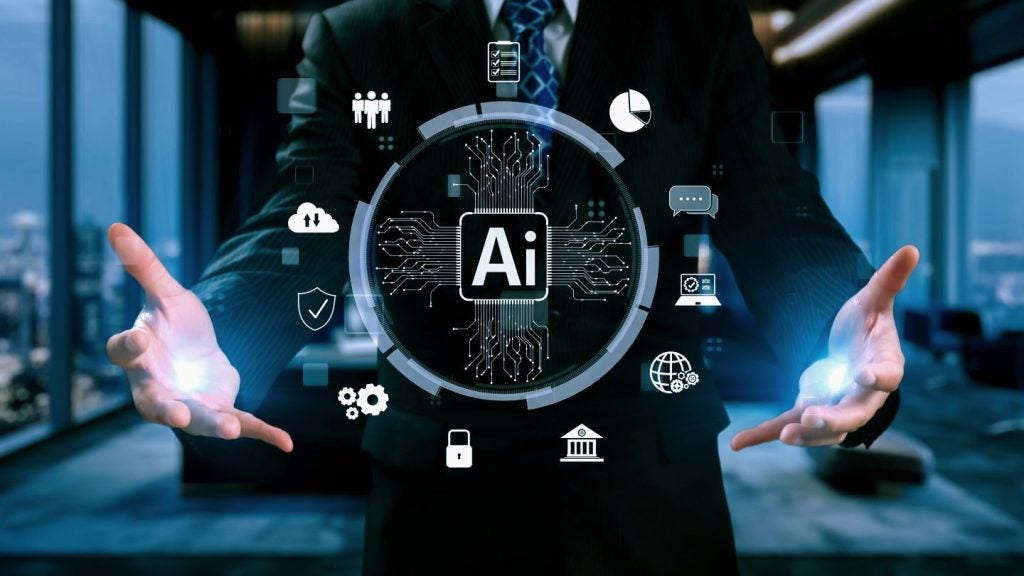The future of the cloud services industry will be shaped by a range of disruptive themes, with robotic process automation (RPA) being one of the themes that will have a significant impact on cloud services companies.A detailed analysis of the theme, insights into the leading companies, and their thematic and valuation scorecards are included in GlobalData’s thematic research report,Robotic Process Automation – Thematic Research. Buy the report here.
RPA describes software that can be programmed to perform basic tasks across a range of platforms and applications. Businesses in virtually every industry accelerated their automation efforts during the pandemic. For some, RPA allowed them to reimagine how they work, while others used RPA to ensure business continued as usual.
RPA has evolved into intelligent automation, wherein AI and other business process technologies—such as low-code development tools, process mining, intelligent document processing, and business process management (BPM)—are combined with RPA to facilitate enterprise-wide automation initiatives.
RPA capabilities are being embedded into various digital transformation tools and services, which are all racing to become the go-to automation platform around which all others are centred. There have been numerous RPA acquisitions in the past two years, with cloud providers and vendors from adjacent sectors eager to fill out their automation portfolios.
However, not all companies are equal when it comes to their capabilities and investments in the key themes that matter most to their industry. Understanding how companies are positioned and ranked in the most important themes can be a key leading indicator of their future earnings potential and relative competitive position.
According to GlobalData’s thematic research report, Robotic Process Automation, leading adopters include: Appian, IBM, Kofax, Microsoft, Nintex, PEGA, SAP and Salesforce.
Insights from top ranked companies
Microsoft is considered the leading alternative to the three prominent RPA-centric players UiPath, Automation Anywhere, and Blue Prism. Microsoft began offering an RPA component, UI Flow, in October 2019 as part of its Power Automate (formerly known as Microsoft Flow) solution. The tech giant significantly added to its RPA offering in May 2020 by acquiring legacy RPA software provider Softomotive. The acquisition added a low-code desktop automation tool to the Power Automate platform. Microsoft provides several integrated features both as part of the Power Automate platform, including Process Advisor (process and task mining) and AI Builder, and as part of the wider Power platform, such as Power BI (analytics), Power Apps (low-code application development platform), and Power Virtual Agents (chatbots). The AI Builder is built on the Azure AI platform and can be used to understand and process text, detect objects in images, analyse customer sentiment, and more.
In October 2021, Microsoft announced an attended RPA solution to automate tasks in SharePoint, Excel, Outlook, OneNote, and third-party business apps. Microsoft’s process advisory capabilities expanded in March 2022 when it acquired Minit, a leader in process mining.
IBM
IBM has focused on acquisitions and innovations to build a comprehensive automation, AI, and hybrid cloud portfolio. In 2020, IBM acquired RPA software provider WDG Automation. The purchase brought RPA in-house, allowing IBM to bypass third-party partnerships with RPA pure plays that it had previously relied on to fill gaps. In 2021, the company acquired myInvenio, a process mining company, and plans to use its technology to onboard new customers into initial automation solutions.
IBM’s RPA capabilities are consolidated under IBM Cloud Pak for Business Automation, its intelligent automation software platform. It consists of a broad set of integrated software components, offering a range of AI-powered automation capabilities such as process mining and RPA, content and decision management, intelligent recognition and capture, workflow management, low-code authoring tools, and analytics solutions.
SAP was the first Big Tech company to jump on the RPA bandwagon and acquire an RPA software provider, picking up Contextor in 2018. However, SAP’s RPA strategy is not as clear as some rivals, such as Microsoft.
Its RPA product is Intelligent Robotic Process Automation (iRPA). It uses APIs and machine learning services to make bots intelligent. iRPA is part of Process Automation (PA), which launched in 2021 and combined SAP’s Workflow Management with iRPA. The combined tool uses a low-code user interface to create, manage, and automate process workflows. PA can be integrated with Process Insights, a process mining and analysis product that stems from its $1.2bn acquisition of Signavio in 2021. PA is part of SAP’s Business Technology Platform, which combines several technology solutions, including data management, analytics, AI, application development, automation, and integration.
To further understand the key themes and technologies disrupting the technology industry, access GlobalData’s latest thematic research report on Robotic Process Automation.
- HPE
- OVHcloud
- Baidu
- Cloudera
- Tencent
- Dell
- Lumen
- HashiCorp
- Oracle
- Inspur Electronic
- Rackspace Technology
- Equinix
- Aviatrix
- Cloudflare
- Rubrik
- Cato Networks
- Salesforce
- Hitachi
- F5 Networks
- Snowflake
- Nutanix
- Micro Focus
- Zoom
- Citrix Systems
- GoDaddy
- Box
- SUSE
- NetApp
- Fujitsu
- Canonical
Data Insights
From

The gold standard of business intelligence.
Blending expert knowledge with cutting-edge technology, GlobalData’s unrivalled proprietary data will enable you to decode what’s happening in your market. You can make better informed decisions and gain a future-proof advantage over your competitors.









